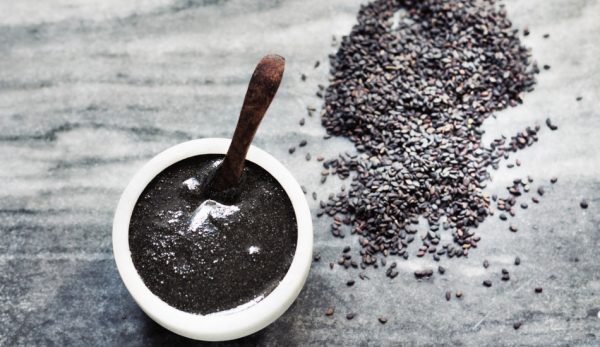Ginger is not just a well-loved spice, it’s also a powerful superfood. But what’s the best time to eat ginger? And should it be peeled before eating? This guide will show you how to enjoy ginger in a way that nourishes your body without causing harm.
5 fabulous health benefits of ginger
Ginger is rich in an array of biochemicals, including essential oils, curcumin, gingerol, shogaol, and starch, among others. These components endow ginger with several impressive health benefits.
- Aids digestion: Ginger contains gingerol and shogaol, which stimulate the movement of the stomach and intestines and increase the secretion of digestive juices, making it a great remedy for digestive discomfort.
- Fights inflammation: Curcumin in ginger has antioxidant and anti-inflammatory properties, which can help reduce inflammation.
- Eases nausea and vomiting: The essential oils in ginger can alleviate nausea and vomiting, especially symptoms caused by pregnancy or chemotherapy.
- Lowers blood sugar and cholesterol: Curcumin and other components in ginger can help lower blood sugar and cholesterol levels, offering support in the prevention of diabetes and heart diseases.
- Relieves pain and muscle spasms: The gingerol and shogaol in ginger can soothe pain and muscle spasms, as well as relieve other muscle discomforts.

Ginger’s warmth: A balancing act in traditional Chinese medicine
In traditional Chinese medicine (TCM), it’s believed that most foods have either “warming” or “cooling” characteristics. These properties influence how the food affects your body — cooling foods help cool the body down, while warming foods help increase the body’s heat. So by eating a balance of warming and cooling foods, you can maintain a balanced state of health. Ginger, with its spicy warmth, is classified as a warming ingredient. It’s widely used in TCM to treat stomach discomfort, cold-induced pain, fever, cough, and more.
When to eat Ginger: Morning boost, evening caution
There’s a saying that the best time to eat ginger is in the morning and it should be avoided in the evening. This claim holds some scientific basis. The components in ginger stimulate the digestive system, helping to promote movement in the stomach and intestines, and the secretion of digestive juices. This can enhance appetite and digestion. With our bodies’ metabolism most active in the morning, eating ginger can help boost metabolism, refresh the mind, and contribute to overall health and wellness. While eating ginger at night may disrupt sleep, moderate consumption of raw ginger in the evening can be acceptable for those without kidney Yin deficiency.
Moreover, ginger’s effect on the body is warming, not overheating. Therefore, you can eat a moderate amount of raw ginger in the morning, afternoon, or evening.
To peel or not to peel
Another common question is: “Should ginger be peeled before eating?” According to TCM, different parts of plants have different tastes and effects, and the flesh and skin of ginger are a perfect example.

The skin of ginger contains more fiber and minerals, but also houses compounds like curcumin, ginger oil, and shogaol. Consuming too much could have negative effects on the body. Among these, shogaol is the most toxic component and can cause gastrointestinal discomfort, breathing difficulties, and allergies if eaten in excess.
From a TCM point of view, the flesh of ginger has a spicy and warming nature that can make you sweat. This helps to improve blood circulation and also dispels cold from the body. So it’s especially good to eat during cold weather or for those who often feel chilly.
On the other hand, the skin of ginger is considered to have a cooling effect. This could be beneficial for those who often feel hot, have a high metabolism, or are dealing with inflammation. If you tend to feel cold easily, it might be a good idea to peel off the skin before eating the ginger. But if you often feel hot or have a high metabolism, keeping the skin on could be better for you.
Use with caution for these people
While ginger has numerous health benefits, it’s not suitable for everyone. Certain individuals should consume ginger with caution, or avoid it altogether:
- People with weaker digestive systems: For those with a sensitive stomach or weaker digestive function, consuming too much ginger might lead to discomfort or diarrhea.
- People prone to allergies: Some people may have allergic reactions to ginger, such as skin inflammation or itching. If you notice these symptoms after consuming ginger, it’s best to stop eating it.
- Pregnant and breastfeeding women: Consuming excessive amounts of ginger may potentially have adverse effects on the fetus or infant. It’s advisable for pregnant and breastfeeding women to moderate their ginger intake.
In general, while ginger is a beneficial spice for many, it’s always important to listen to your body and adjust your diet accordingly.
Translated by Eva










